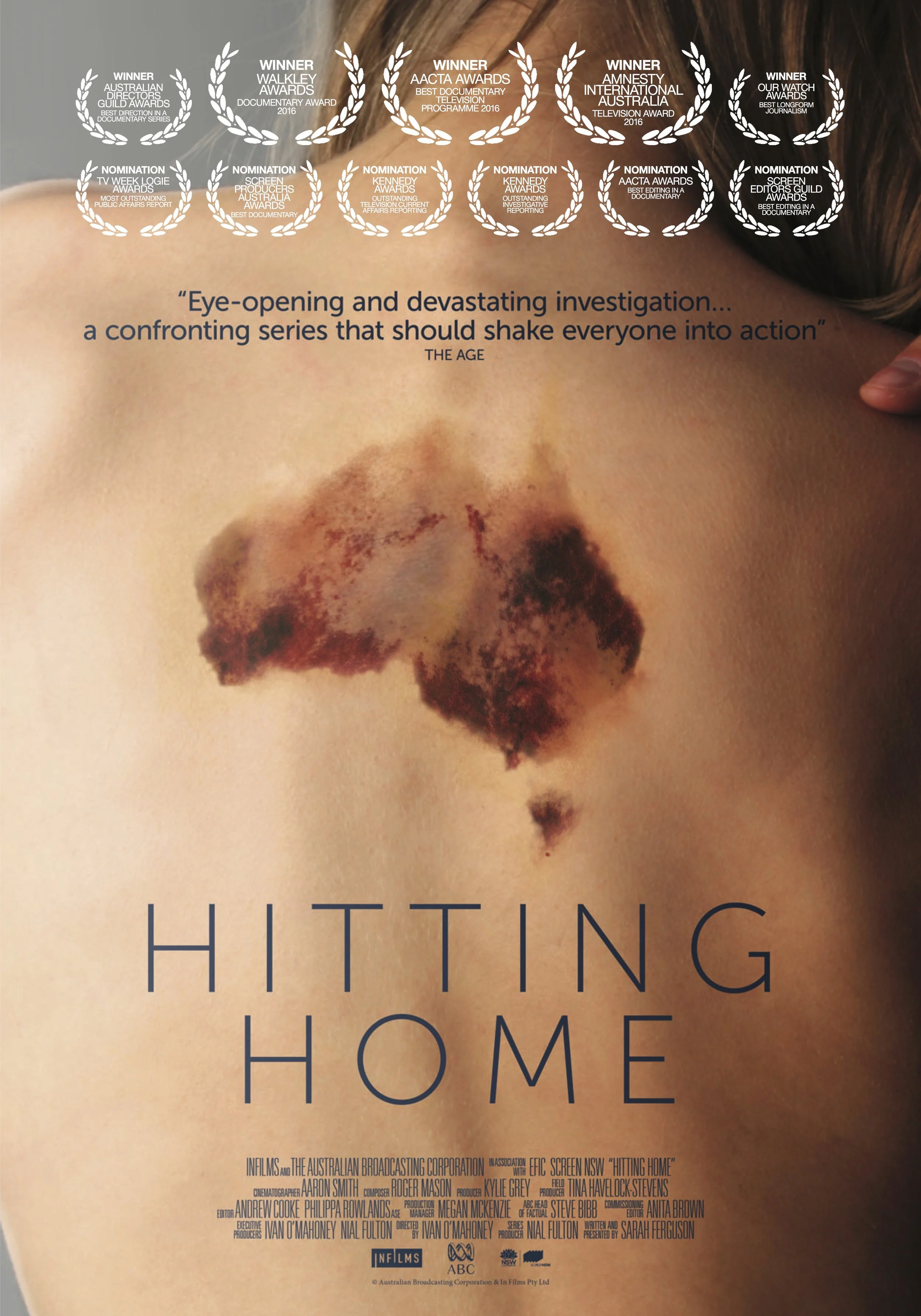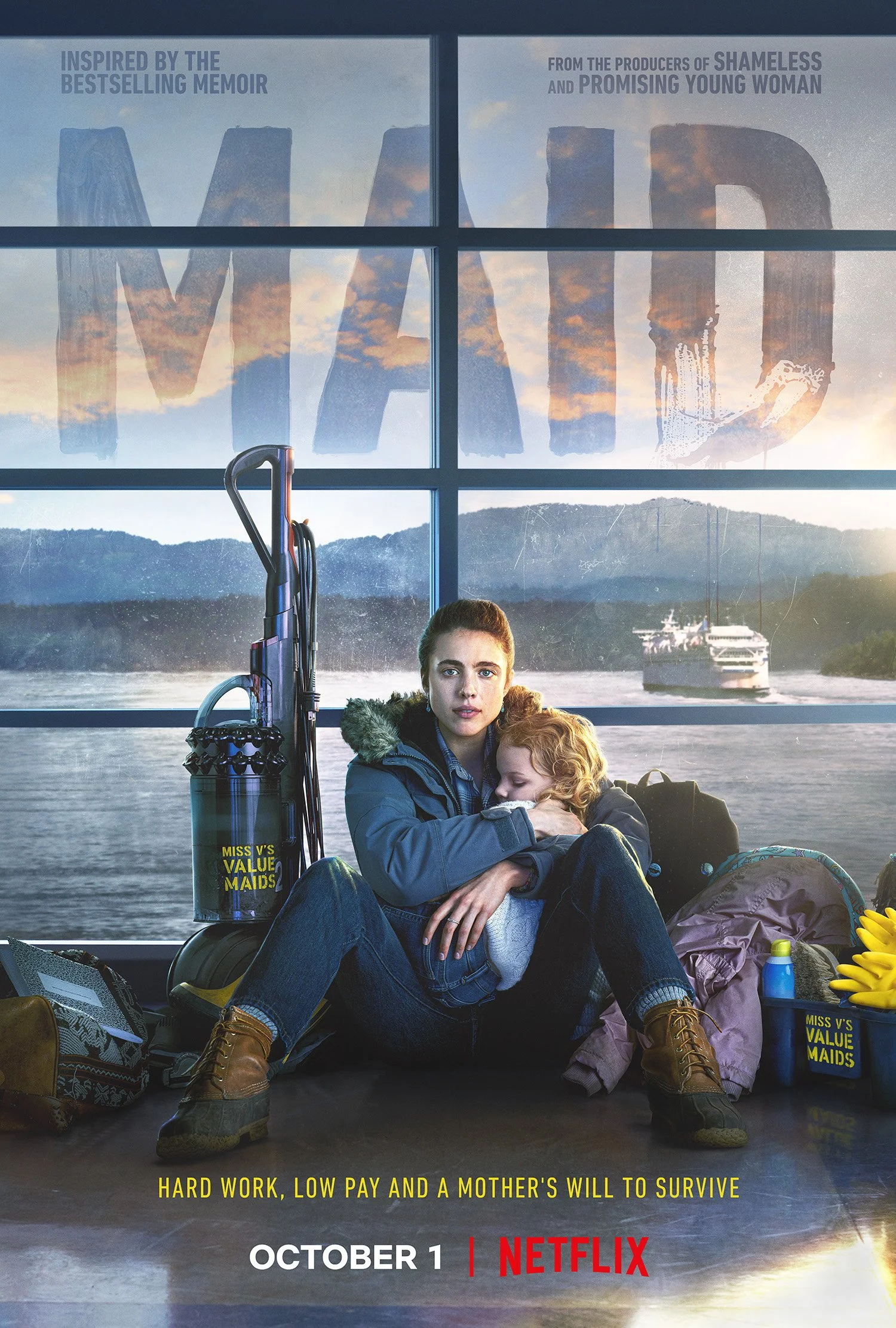Three Stories on Screen That Help Us Understand Intimate Partner Violence
Many people will experience intimate partner or family violence—either directly or through someone they love. For those who haven’t, and are only beginning to grasp the scale of this crisis through the devastating headlines of women killed by men, this post is a place to start.
Because while you may never truly feel what it’s like to live with abuse, you can take the time to understand it. And that understanding matters. It helps you show up better. It helps you believe faster. It helps you respond with care when it counts.
Ideally, it does more than inform you—it moves you. It sharpens your awareness, your empathy, and your sense of responsibility. Because the people experiencing this aren’t somewhere else. They’re here. They’re us. And they need more than our sympathy. They need us to pay attention—and do something.
There’s one documentary and two series that—together—offer a powerful entry point into that understanding. At Todaybreak, we see these as essential viewing. They reflect the lived experiences we’ve heard again and again from victim-survivors. Stories like these stay with us—and they’re part of what drives us to keep building better ways to protect, support, and respond.
You may not know what it feels like to live it—but after watching these, you’ll never forget them. They stay with you. Just like the people they represent.
No one should be looking away. It’s all around us.
Getting informed is the very least we can all do.
A note of caution: if you’ve experienced violence—or are living through it now—these shows may not be safe to watch. They can retraumatise or hit too close to home. This post is for those who haven’t lived it, but need to understand the world others are navigating every day.
1. Hitting Home (Documentary)
Hitting Home is a groundbreaking Australian documentary that, combined with the devastating number of men who chose to murder women and children in Australia in 2019, was the original catalyst for the creation of the Milli app and the Safe with Milli pilot program.
The documentary does what few works have the courage to do: it brings the viewer face to face with the scale, severity, and intimacy of domestic and family violence in Australia. It follows real women, men, and children through courts, refuges, hospitals, and homes—offering a raw and confronting look at the crisis playing out across Australia.
Importantly, it also reveals how services and systems—while often well-intentioned—are patchy, under-resourced, and reactive. It exposes the ways victims fall through the cracks, how support is uneven depending on geography or circumstance, and how we urgently need coordinated responses that prioritise early intervention and sustained care.
It’s a powerful reminder that the “crisis” isn’t happening elsewhere—it’s happening in our own communities, often behind closed doors.
And it should never have taken this many lives to get our attention.
Hitting Home is not comfortable viewing. But it is essential.
Where to watch Hitting Home
You can buy and stream the two-part documentary series on Apple TV or Google Play.
Please note that as of now, Hitting Home is not available for free streaming on ABC iview or other free platforms. However, you can monitor platforms like JustWatch for updates on any changes in availability.
2. Maid (Movie)
Maid follows the story of Alex, a young mother who escapes an abusive relationship with her daughter and tries to rebuild their lives. It captures not just the act of fleeing, but the psychological toll of survival—the grinding bureaucracy, the isolation, the stigma, and the near-impossible balancing act of being a mother, a worker, and a trauma survivor all at once.
What Maid does so effectively is show how abuse isn’t always physical. It shines a light on coercive control: the financial manipulation, the emotional cruelty, the constant erosion of confidence that keeps victims stuck. It also exposes the failures of the systems meant to catch women like Alex. Instead of receiving help, she faces mountains of paperwork, humiliating conditions, and daily reminders that the system was never designed for women without power or privilege.
But at the heart of Maid is something even more quietly devastating: the heartbreaking scenes where Alex is desperately trying to be a good mother. She shields her daughter from the truth of their situation—turning damp floors into fairy tales, or hunger into a game—while carrying the full weight of fear, shame, and exhaustion herself. The care she gives is relentless. And invisible. It’s the kind of care that goes unseen—except by those who’ve lived it
There are moments of hope, but they are fragile—always vulnerable to collapse with a single missed shift, a broken-down car, or an unexpected court ruling. The resilience shown is extraordinary, but it should never be required at this scale.
Maid reminds us that asking victims of trauma and violence to be strong is not fair—and it’s not the solution. Changing the conditions is.
Where to watch Maid
You can watch Maid on Netflix or Apple TV.
3. Until I Kill You (TV Series based on a true story)
Until I Kill You is based on the true story of Delia Balmer, a woman who survived unspeakable violence at the hands of a serial offender she had been in a relationship with. It is a disturbing, necessary series that confronts the full complexity of what it means to live through, and attempt to escape from, intimate partner violence.
The series explores what it means to slowly come to terms with being in a violent relationship—often after months or years of manipulation, fear, and gaslighting—and the overwhelming challenge of figuring out how to get out. It doesn’t shy away from the layered realities victims must navigate: the fear of making the situation worse by seeking help, the confusion and shame, the constant weighing up of physical risk, financial insecurity, and emotional cost.
But above all, Until I Kill You is an indictment of the systems meant to protect. It lays bare just how poorly police services and the legal system are equipped to respond to this kind of violence. Victims face an exhausting and retraumatising process: the burden of proof falls on them; protection is delayed or insufficient; and the rights of the accused are too often prioritised over the safety of the person already harmed. What emerges is a system that, for all its procedures, fails in its most basic duty—to protect.
The series also explores what life looks like after leaving. Romantic relationships, work life, social connection—none of it is ever quite the same. Delia describes “the day he killed her,” even though she didn’t die. It just felt like she did. That line stays with you. It says everything about the deep, irreversible rupture caused by this kind of harm.
There are no neat resolutions in Until I Kill You. But there is clarity. About what victims endure. About what the system gets wrong. And about why we cannot look away.
Where to watch Until I Kill You
All four episodes of Until I Kill You are available to stream for free on ABC iview, Britbox, AppleTV and Prime Video.
None of these stories are easy to watch. That’s the point. They ask us not to look away.
At Todaybreak, we believe that developing a deeper understanding of intimate partner violence—however imperfect—helps build better advocates, better listeners, and stronger allies. None of us can ever fully grasp someone else’s experience. But we can choose to learn more. And from that understanding, act.



